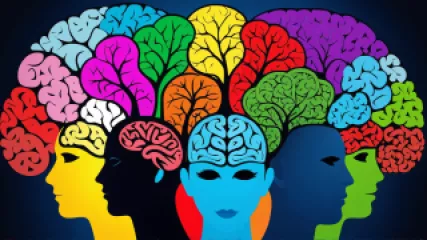Understanding the Psychology of Belief Formation
Beliefs play a fundamental role in shaping our thoughts, emotions, and actions. They influence how we perceive the world, interpret events, and make decisions. Understanding the psychology of belief formation can provide valuable insights into why we hold certain beliefs and how they impact our lives. In this tutorial, we will explore the intricate process of belief formation, the factors that contribute to it, and the potential for belief change.
1. What are Beliefs?
Beliefs are cognitive structures that represent our understanding of reality. They are the lenses through which we interpret information and make sense of our experiences. Beliefs can be about ourselves, others, the world, or specific situations. They can be based on personal experiences, cultural influences, or social conditioning.
Beliefs serve several functions. They help us navigate the world by providing a framework for understanding and predicting events. They shape our attitudes, values, and behaviors. Beliefs also fulfill psychological needs such as the need for certainty, meaning, and control.
2. The Formation of Beliefs
Beliefs are not static entities; they evolve and adapt over time. The process of belief formation is complex and influenced by various factors. Let's explore some of the key contributors to belief formation:
2.1. Personal Experience
Personal experiences play a significant role in shaping our beliefs. Direct encounters with events, people, or situations can reinforce or challenge existing beliefs. For example, a positive experience with public speaking may strengthen the belief that one is a competent speaker, while a negative experience may reinforce the belief of incompetence.
2.2. Social Influence
Our beliefs are strongly influenced by the people around us. Family, friends, teachers, and society at large contribute to the formation of our beliefs through socialization processes. We often adopt the beliefs of those we trust or admire, seeking acceptance and validation within our social groups.
2.3. Cultural Factors
Culture plays a vital role in shaping our beliefs. Cultural norms, values, and traditions provide a shared framework for understanding the world. They influence what we consider right or wrong, acceptable or unacceptable. Cultural beliefs can be deeply ingrained and impact various aspects of our lives, such as religion, gender roles, or societal expectations.
2.4. Cognitive Biases
Our cognitive biases also contribute to belief formation. Cognitive biases are systematic errors in thinking that affect how we process and interpret information. Confirmation bias, for instance, leads us to seek and interpret evidence that confirms our existing beliefs while disregarding contradictory information. Availability bias makes us rely on readily available examples or information when forming beliefs.
3. The Impact of Beliefs
Beliefs have a profound influence on our thoughts, emotions, and behaviors. They shape our perception of reality and affect how we interact with the world. Here are some ways in which beliefs impact our lives:
3.1. Cognitive Impact
Beliefs influence our cognitive processes, such as attention, memory, and problem-solving. They filter our perception, directing our attention towards information that aligns with our beliefs while filtering out contradictory evidence. Our memory is also biased; we tend to remember information that supports our beliefs more easily.
3.2. Emotional Impact
Beliefs strongly influence our emotional experiences. Positive beliefs can generate feelings of happiness, confidence, and motivation, while negative beliefs can lead to anxiety, sadness, or low self-esteem. Our beliefs about ourselves, others, and the world shape our emotional responses to different situations.
3.3. Behavioral Impact
Beliefs drive our actions and behaviors. They influence the choices we make, the goals we pursue, and the values we prioritize. For example, a belief in the importance of education can motivate someone to strive for academic success, while a belief in personal freedom can lead to a career path focused on entrepreneurship.
4. Challenging and Changing Beliefs
While beliefs can provide a sense of stability and security, they can also limit our growth and potential. Challenging and changing beliefs is an essential process for personal development and well-being. Here are some strategies for belief change:
4.1. Self-Reflection
Self-reflection involves examining our beliefs critically and questioning their origins and validity. By exploring alternative perspectives and considering new evidence, we can challenge ingrained beliefs and open ourselves up to different possibilities.
4.2. Cognitive Restructuring
Cognitive restructuring is a therapeutic technique that aims to modify irrational or unhelpful beliefs. It involves identifying and challenging negative or distorted thinking patterns and replacing them with more rational and adaptive beliefs. This process can be facilitated through therapy or self-help techniques.
4.3. Exposure to Diverse Perspectives
Exposing ourselves to diverse perspectives and experiences can broaden our understanding and challenge narrow beliefs. Engaging in dialogue with people who hold different views, reading literature from various cultures, or traveling to unfamiliar places can expand our horizons and promote belief flexibility.
4.4. Mindfulness and Awareness
Mindfulness practices cultivate present-moment awareness and non-judgmental observation of thoughts and beliefs. By developing a mindful mindset, we can become more aware of our automatic thoughts and beliefs, allowing us to question their validity and make conscious choices.
5. Conclusion
Beliefs are powerful psychological constructs that shape our perception, emotions, and behavior. While they provide structure and meaning to our lives, it's essential to critically examine our beliefs and be open to change. Understanding the psychology of belief formation empowers us to navigate the complex interplay between our beliefs and the world around us, fostering personal growth and well-being.






